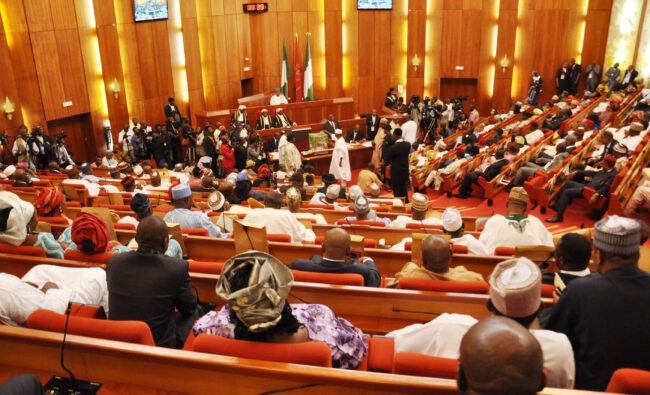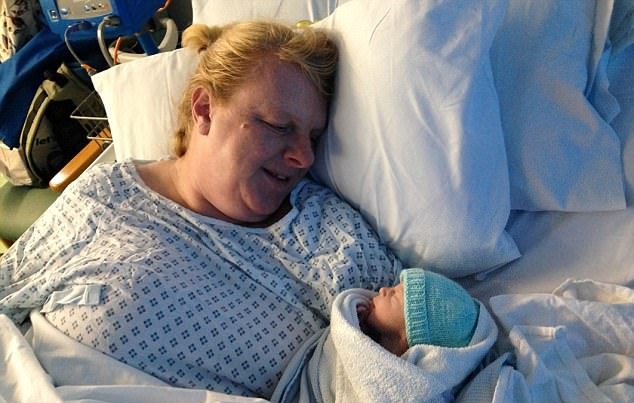Oral polio vaccination in Kano, Nigeria
Kemi Chukwu battles with the tears in her eyes that are just determined to drop. She wipes them furiously with her arms, her voice throaty from her sobs as she recalls, vividly, the death of her baby.
“The time my baby died, she was just four years old. I had money at the time, so I gave her all that she needed,” she tells TheCable in pidgin English.
“My husband and I bought all that my children needed yet my child died… I know it was the vaccine.”
Chukwu, a recent widow who now works as a domestic help earning N15,000 naira a month, has five kids after she lost one of her children three years ago.
Advertisement
“She was sleeping in between me and my husband and until my husband tapped me to find out why she was still,” she says
“I checked and she was dead. I know it is the vaccine that killed my child.”
Nigeria currently has the highest number of unimmunised children globally, a position, formerly held by India.
Advertisement
The National Immunisation coverage survey (NICS) carried out by Nigeria’s National Primary Health Care Development Agency (NPHCDA), shows that only about one in five children are fully vaccinated.
The survey lists out reasons parents or caregivers give for failing to immunise.
According to the survey, 22 percent caregivers don’t trust or are even fearful of vaccines while nine percent said they were too busy to immunise their children and 18 percent had other “family issues”.
Chukwu is one of the many people who hold strong beliefs against immunisation.
Advertisement
“That my daughter, I loved her so much. I gave birth to her, I will never forget, December 25th, the same day with Jesus, and because of all these immunisations, she died”, Chukwu says.
Save for the BCG and HPV vaccine, Chukwu has, in fact, refused to take her younger children, whom she delivered at home without the help of a midwife or anyone at all, to get immunised.
“No need. It is God that delivers people. See my other children, I gave birth to them at home and they are fine. I was forced to take them to the hospital after eight days that is why the gave them the immunisation on their arm and leg.”
Chukwu says she will not be immunising them anymore.
Advertisement
“See them now, they haven’t fallen sick. My small one is three years and the other one is five years. They are fine,” she says.
Chika Offor, vaccine campaigner and executive director at Vaccines Network, says vaccine campaigns fail because of a flawed strategy.
Advertisement
She says if the government continues to focus on just the supply chain of vaccines without tackling issues like poverty and ignorance, vaccine campaigns will not succeed.
She says poor communities often deal with a lot of issues like lack of drinkable water, access to hospitals amid other challenges that lead to high child mortality rates.
Advertisement
A set of twins passed away after the contracted typhoid in one of the urban slums in Abuja. “The community rallied round to pay for the treatment of these girls, yet they still died”
“In that community, we had even succeeded in creating vaccine awareness,” Offor said. But with the death of the twins and several children dying of malnutrition and other early childhood illness mostly arising from poverty, the faith of caregivers are dwindling, Offor says.
Advertisement
Chukwu resides in Lagos, but her story is the same – lack of faith in vaccines because of the death of her child which has not been scientifically traced to vaccines.
As GAVI withdraws funding to Nigeria, the future looks bleak for the children
Offor worries about Nigeria’s fate after GAVI totally withdraws vaccine funding to the country in 2012.
She says the country’s constant inability to meet up with vaccines funds will put the lives of millions of kids in danger.
This year alone, GAVI withdrew 20 percent of its vaccine support funding to the country, wanting Nigeria to take more responsibility for vaccine-preventable disease as it attains lower middle-income country status.
The organisation will continue to reduce 20 percent of its support funds till 2021 when it will stop funding for vaccines in Nigeria.
Ben Anyene, chairman of the National Immunisation Financing Task Team, says GAVI’s departure will pose dire consequences.
At at a press briefing in July, he told journalists of the grave consequences that would arise if Nigeria does not start planning for GAVI’s departure immediately.
“There will be total stock out of vaccines, unimmunised children will increase and that will eventually lead to mass deaths of children across the country. Those who are lucky to be alive will be incapacitated for the rest of their lives,” he said.
Offor says non-governmental organisations are now sensitising the national assembly and private organisation on the need to take ownership for immunisation funding.
“Nigeria is not poor. We can fund immunisation campaigns even at the state level,” she said.
“We can also look at the private sector funding where they have CSR for immunisation. Local vaccine production is also crucial.”
Offor said it is important to make a case that immunisation is important, otherwise the country will be educating children who are sick.






